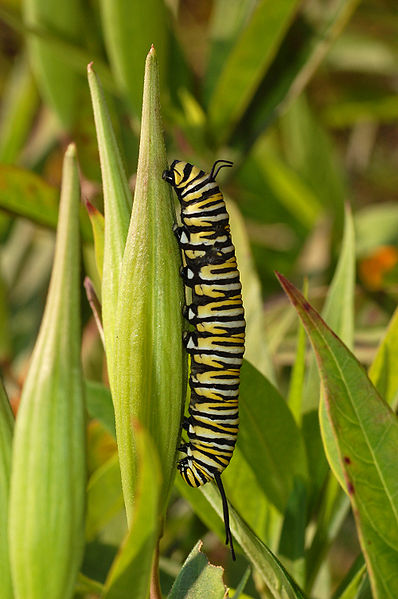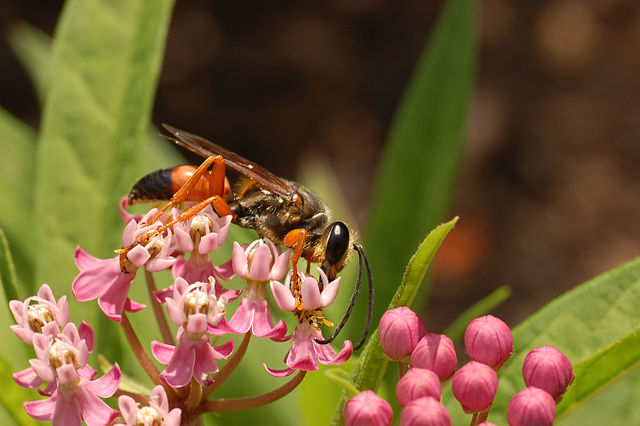Asclepias incarnata, the swamp milkweed, rose milkweed, rose milkflower, swamp silkweed, or white Indian hemp, is a herbaceous perennial plant species native to North America. It grows in damp through wet soils and also is cultivated as a garden plant for its flowers, which attract butterflies and other pollinators with nectar. Like most other milkweeds, it has latex containing toxic chemicals, a characteristic that repels insects and other herbivorous animals.
Asclepias incarnata
With monarch butterfly larva
With Sphex ichneumoneus
Open follicles
Asclepias is a genus of herbaceous, perennial, flowering plants known as milkweeds, named for their latex, a milky substance containing cardiac glycosides termed cardenolides, exuded where cells are damaged. Most species are toxic to humans and many other species, primarily due to the presence of cardenolides. However, as with many such plants, some species feed upon them or from them. The most notable of them is the monarch butterfly, which uses and requires certain milkweeds as host plants for their larvae.
Asclepias
A monarch butterfly on swamp milkweed
Asclepias syriaca seed pods, upper image from August and lower from December
Milkweed sprout, a few days after sowing








